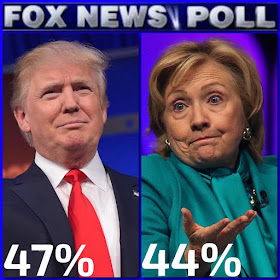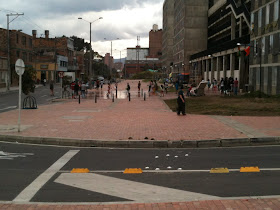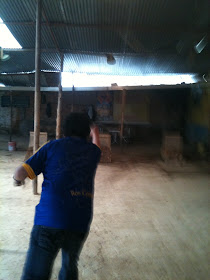It was with some bemusement I found myself watching the Fox News hosted US Republican Party presidential candidates' debate the other night ahead of the upcoming Iowa caucus.
Most of it was utterly cringeworthy — no surprises there I hear you say. Perhaps we should cut them some slack; it is, after all, just a 'little' United States conservative affair to see who actually gets nominated, so they're playing to that particular gallery. None of them is running the whole show — for the time being anyway.
Yet, I couldn't prevent myself from getting a little angry listening to some of the utterances by these potential leaders of the "free world". And the man who irked me the most was the one who has been touted to be US president someday — if not this time around, in future elections: the Republican's young saviour, Marco Rubio.
The number of times he spoke of Jesus Christ and 'almighty God' doing their (or 'his', it's the one "person", isn't it?) bit to make the United States of America 'great again' was actually quite disturbing. Who needs concrete, practical policies when God is standing by to lend a hand? Heck, this presidency gig is child's play.
OK, everyone is entitled to his/her beliefs, but when we're dealing with real-life issues, quoting from books of questionable veracity and putting your trust in something that we have scant evidence of its actual existence is worrying (on this front, do recall Iraq's 'Weapons of Mass Destruction').
 |
| Rubio: Preaching from the pulpit. |
The number of times he spoke of Jesus Christ and 'almighty God' doing their (or 'his', it's the one "person", isn't it?) bit to make the United States of America 'great again' was actually quite disturbing. Who needs concrete, practical policies when God is standing by to lend a hand? Heck, this presidency gig is child's play.
OK, everyone is entitled to his/her beliefs, but when we're dealing with real-life issues, quoting from books of questionable veracity and putting your trust in something that we have scant evidence of its actual existence is worrying (on this front, do recall Iraq's 'Weapons of Mass Destruction').
Sure there's no need for science to find a remedy for the current Zika virus pandemic, God'll fix it. It's akin to an episode of the British/Irish sitcom Fr Ted, where one of the priests is in a life-threatening situation that required a practical solution but the original help he receives from his colleagues is a mass. Needless to say, there was no divine inspiration and a more hands-on approach won the day.
What's more, this fundamentalist Christian approach has the potential to be, and has been, as damaging and dangerous in a multi-ethnic USA and beyond as Muslim fundamentalism is. It seems that Rubio, of Cuban-Catholic origin, is trying to be more Wasp (White Anglo-Saxon Protestant) than the Wasps themselves.
The Florida senator even had the temerity to have a little dig at Sweden. This is the Sweden that regularly features amongst the top in the world for access to and standard of education, good health care, quality of life and such like. The 'great' United States of America could do much worse than to follow the Nordic country in how it runs its affairs.
Indeed, an indication of the political acumen on display in the debate was that Jeb Bush actually came across as one of the ablest (Ben Carson also performed well, but in this show-biz contest he lamentably lacks the charisma to appeal to the masses). Missing on the night, it must be remembered, was the leading contender Donald Trump. That he's actually heading this race pretty much sums up what we're dealing with here.
Fair enough, there's not too much to inspire confidence on the Democratic side either, but is it a case of going with the lesser of two evils?
That aside, it is only the president's gig we're talking about: just the dog (or should that be god?) being wagged by the unelected US and world financial tail that controls more or less everything. Ah well, at least we get a bit of TV drama from this election smoke screen.
________________________________________
Facebook: Wrong Way Corrigan - The Blog & IQuiz "The Bogotá Pub Quiz".
What's more, this fundamentalist Christian approach has the potential to be, and has been, as damaging and dangerous in a multi-ethnic USA and beyond as Muslim fundamentalism is. It seems that Rubio, of Cuban-Catholic origin, is trying to be more Wasp (White Anglo-Saxon Protestant) than the Wasps themselves.
 |
| Is Mrs Clinton to be Trumped? |
Indeed, an indication of the political acumen on display in the debate was that Jeb Bush actually came across as one of the ablest (Ben Carson also performed well, but in this show-biz contest he lamentably lacks the charisma to appeal to the masses). Missing on the night, it must be remembered, was the leading contender Donald Trump. That he's actually heading this race pretty much sums up what we're dealing with here.
Fair enough, there's not too much to inspire confidence on the Democratic side either, but is it a case of going with the lesser of two evils?
That aside, it is only the president's gig we're talking about: just the dog (or should that be god?) being wagged by the unelected US and world financial tail that controls more or less everything. Ah well, at least we get a bit of TV drama from this election smoke screen.
________________________________________
Facebook: Wrong Way Corrigan - The Blog & IQuiz "The Bogotá Pub Quiz".









